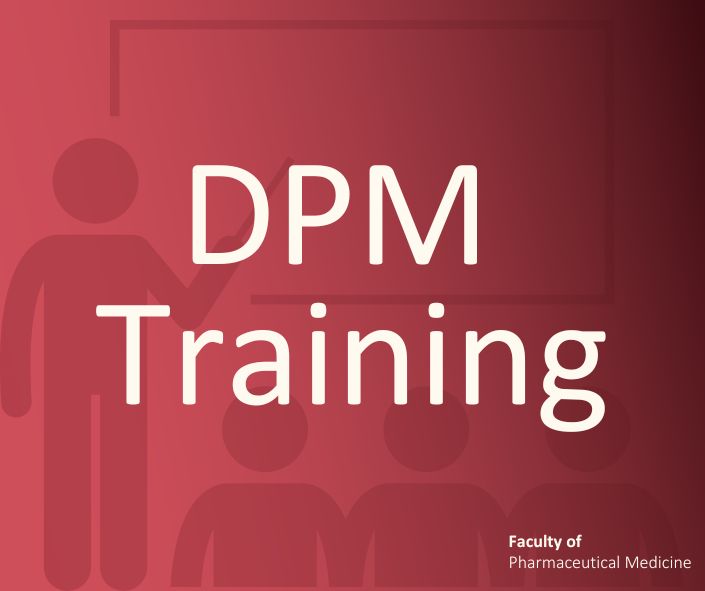How to pass the DPM exam
Posted on: Wednesday 24 January 2024
Author: FPM
How to pass the DPM exam
This text is adapted from a webinar delivered in May 2021
The DPM (Diploma in Pharmaceutical Medicine) exam is a crucial certification for professionals in the pharmaceutical industry. Passing the exam demonstrates your expertise and knowledge in the field, opening up career opportunities.
We often receive requests from people asking how they might best approach taking the DPM exams. Here are some tips:
Part 1 MCQ paper
1. Understand the Format
- The multiple choice question (MCQ) paper consists of 75 questions, with each question having five true/false completions.
- You have 2 hours 30 mins to complete this part, and it’s an essential step to qualify for the DPM.
- It’s important to note that you must pass Part 1 before being eligible for Part 2.
2. Revise Thoroughly
- Extensive revision is the key to success in the MCQ paper. Ensure you’re well-prepared by covering all relevant topics.
- Familiarise yourself with the key subject areas, guidelines, and recent developments in pharmaceutical medicine.
3. No Negative Marking
- A significant advantage of the MCQ paper is that there’s no negative marking. You won’t lose points for incorrect answers, so don’t leave any questions unanswered. Guess if necessary.
4. Time Management
- Effective time management is essential for the MCQ paper. Allocate sufficient time to each question.
- Start with questions that you can answer easily to build confidence and save time for the more challenging ones.
Part 2: SAQ and CAP Papers
1. Short Answer Paper (SAQ)
- The SAQ paper contains 10 questions and assesses your factual knowledge and data interpretation skills.
- You must answer all questions, and you should aim to score well on at least eight of them.
2. Answer All Questions
- It’s crucial to attempt all questions in the SAQ paper. Leaving more than three questions unanswered may result in failure.
- Carefully read and understand the questions before providing concise answers.
3. Use Past Questions as a Guide
- Reviewing past questions can provide insights into the format of the SAQ paper.
- While the questions themselves may not be reused, topics often have similarities from year to year.
4. Critical Appraisal Paper (CAP)
- The CAP paper assesses your ability to read and critique scientific papers.
- It typically includes 13-14 questions, with a balance of factual and critique-based questions.
5. Read the Whole Paper
- When tackling the CAP paper, read the entire paper thoroughly. Don’t just skim through to find answers.
- Don’t worry about blacked-out or redacted information; focus on what is provided.
6. Understand the Question
- Ensure you answer the question asked. Distinguish between factual responses and critique/opinion-based answers.
- For critique questions, provide explanations of why certain aspects are important (“the so what”).
7. Practice, Practice, Practice
- Consistent practice is vital for the CAP paper. Regularly practice reading and critiquing scientific papers.
- Focus on developing your ability to critically assess the importance of different aspects.
Part 3: Marking and Standard Setting
1. Marking Process
- The MCQ paper is electronically marked, while the SAQ and CAP papers are evaluated by pairs of experienced examiners.
- A third marker may assess papers with discrepancies between the first two.
2. Pass Mark and Standard Setting
- The pass mark is determined annually and can vary based on the overall performance of candidates.
- There’s no predetermined proportion of candidates who can pass; it depends on individual performance.
- Questions vary in difficulty, and passing candidates should have a foundation level of knowledge or a strong grasp of important topics.
DPM Training Programme 2024 is now open
Have you heard of our DPM Training Programme?
The Diploma in Pharmaceutical Medicine (DPM) training programme has been designed by FPM to prepare candidates for the Certificate in Pharmaceutical Medicine (CPM) and Diploma in Pharmaceutical Medicine (DPM) exams.
The programme is mapped to the PharmaTrain syllabus, on which the CPM and DPM exams are based, aiming to improve knowledge across six broad topic areas, with three additional exam technique courses that explore technique and question practice across the three types of papers that feature in the CPM and DPM exams.
DPM training programme 2024 are now open- book your modules now
A taster of what the DPM training programme provides:
- Study Plans ✔
- Reflective practice ✔
- Guided reading ✔
- Practice exam questions for each topic area ✔
- Discussion forums ✔
- Quizzes ✔
- Recorded presentations and interviews ✔
What are the benefits of taking the Diploma in Pharmaceutical Medicine?
Hear from four DPM awardees
Closing remarks
The DPM exam is a significant step in advancing your career in pharmaceutical medicine.
Following these tips and adequately preparing for each part of the exam will increase your chances of success.
Best of luck on your journey to obtaining the DPM certification!
Additional resources
- DPM Past Exam Papers from the 2017-2019 Part 2 exams (440.95 KB)
- DPM Examination Overview (April 2020 presentation) (722.83 KB)
- DPM Examination Top Tips for Candidates (343.10 KB)
- Example of a good SAQ answer (from 2019 paper) (136.89 KB)
- Slide Presentation on tips for studying for and passing the Critical Appraisal Paper (FPM Education Day 2015) (655.53 KB)
- DPM presentation from "How I Passed the DPM" online event May 21 (462.39 KB)

